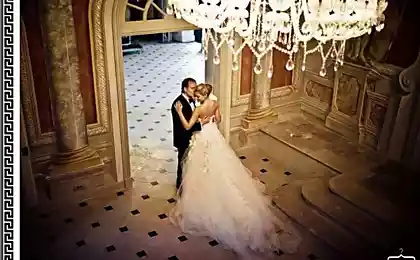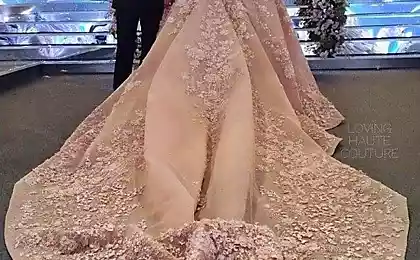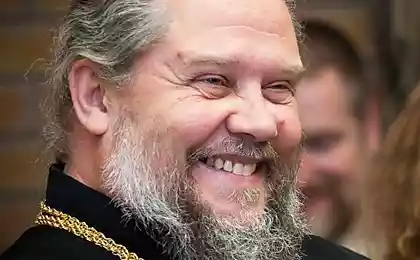471
Why do we call each other babies and toddlers?
The word "baby" is considered an indispensable attribute of a romantic relationship, but whether to continue to ignore the fact that his original meaning — "a small child"? In the online version of the magazine New Republic published an article on this issue, and we have identified it the most important thing.
Sixty million two hundred eighty five thousand four hundred twenty four
If you believe the Oxford English dictionary, the concept "baby" (baby) as a romantic term was used in the epistolary novel the writer Ben AFRA "Love letters of a nobleman and his sister," published in 1684: his main character claims that he has in mind is not "afflict his lovely baby".
It is not excluded that the tendency of men to treat a woman like a little child, and sometimes even select partners that look like the child, we have evolution. In the mid XX century, Austrian ethologist and animal psychology Konrad Lorenz suggested that the loveliness of children is a kind of survival tool: parents need the incentive to constantly worry about their offspring, and helpless charm baby may well serve this purpose. Thus, having met the woman with the baby face, the man instinctively tries to take her under his wing.
"At some point, my wife began to call me a beefcake, and I was sincerely outraged. I don't want to be a puddin'."
However, the popularity of treatment "baby" can hardly be explained only by the tendency of men to the role of the patron: in the end, women also call their partners "baby". Consultants in the field love and family relations believe that the use of diminutive-hypocoristic words — it is a healthy trend that helps the couple to create a special, intimate world. "When you feel someone strong attachment, it seems inappropriate to call it ordinary, generally accepted name," says psychologist Steven Stosny.
According to a 1993 study, researchers from the Ohio state University O Carol and Judy Pearson happy couples often use the intimate jargon, or "idiosyncratic communication". O and Pearson interviewed 154 married couples — from newlyweds and ending with those whose children have long lead an independent life — and found that 116 of them use in communicating with each other at least one pet idiom. Moreover, the researchers found that the more delicate cases to each other in the vocabulary of husband and wife, the more satisfied they were with the marriage.
"Baby", of course, is not the only word available to couples seeking to be kind to each other verbally. The classic "favorite" or "beloved" ("sweetheart") is found in the works of Geoffrey Chaucer and William Shakespeare; use "dear" or "honey" ("honey") was used in the romantic Scottish ballads, whose age has more than 800 years. Not only English people call each other "baby": the similar treatment in other languages — from French to Chinese baobei bébé.
Sexologist Logan Levkoff sure that the person calling partner "baby", claims the undivided ownership of the affiliate.
"There are many women who do not accept treatment "baby," says Ian Kerner, an expert on sexuality from the USA. It seems to them humiliating. At some point my wife began to call me "sweetie", and I was sincerely outraged. I don't want to be a beefcake. It offends my sense of dignity".
Probably, some couples really can ignore the original meaning of the word "baby" and perceive it as a kind of cultural code. However, sexologist Logan Levkoff sure that the person calling partner "baby", and claim to the undivided possession of him or her: "Many believe that the child is our property, — says Levkoff. — So when we call "baby" of the adult partner, we thus want to consolidate their right of possession by him or her. And it is a signal that it is time to reconsider the relationship."published
Author: Maria Ivanova
P. S. And remember, just changing your mind — together we change the world! ©
Source: theoryandpractice.ru
Sixty million two hundred eighty five thousand four hundred twenty four
If you believe the Oxford English dictionary, the concept "baby" (baby) as a romantic term was used in the epistolary novel the writer Ben AFRA "Love letters of a nobleman and his sister," published in 1684: his main character claims that he has in mind is not "afflict his lovely baby".
It is not excluded that the tendency of men to treat a woman like a little child, and sometimes even select partners that look like the child, we have evolution. In the mid XX century, Austrian ethologist and animal psychology Konrad Lorenz suggested that the loveliness of children is a kind of survival tool: parents need the incentive to constantly worry about their offspring, and helpless charm baby may well serve this purpose. Thus, having met the woman with the baby face, the man instinctively tries to take her under his wing.
"At some point, my wife began to call me a beefcake, and I was sincerely outraged. I don't want to be a puddin'."
However, the popularity of treatment "baby" can hardly be explained only by the tendency of men to the role of the patron: in the end, women also call their partners "baby". Consultants in the field love and family relations believe that the use of diminutive-hypocoristic words — it is a healthy trend that helps the couple to create a special, intimate world. "When you feel someone strong attachment, it seems inappropriate to call it ordinary, generally accepted name," says psychologist Steven Stosny.
According to a 1993 study, researchers from the Ohio state University O Carol and Judy Pearson happy couples often use the intimate jargon, or "idiosyncratic communication". O and Pearson interviewed 154 married couples — from newlyweds and ending with those whose children have long lead an independent life — and found that 116 of them use in communicating with each other at least one pet idiom. Moreover, the researchers found that the more delicate cases to each other in the vocabulary of husband and wife, the more satisfied they were with the marriage.
"Baby", of course, is not the only word available to couples seeking to be kind to each other verbally. The classic "favorite" or "beloved" ("sweetheart") is found in the works of Geoffrey Chaucer and William Shakespeare; use "dear" or "honey" ("honey") was used in the romantic Scottish ballads, whose age has more than 800 years. Not only English people call each other "baby": the similar treatment in other languages — from French to Chinese baobei bébé.
Sexologist Logan Levkoff sure that the person calling partner "baby", claims the undivided ownership of the affiliate.
"There are many women who do not accept treatment "baby," says Ian Kerner, an expert on sexuality from the USA. It seems to them humiliating. At some point my wife began to call me "sweetie", and I was sincerely outraged. I don't want to be a beefcake. It offends my sense of dignity".
Probably, some couples really can ignore the original meaning of the word "baby" and perceive it as a kind of cultural code. However, sexologist Logan Levkoff sure that the person calling partner "baby", and claim to the undivided possession of him or her: "Many believe that the child is our property, — says Levkoff. — So when we call "baby" of the adult partner, we thus want to consolidate their right of possession by him or her. And it is a signal that it is time to reconsider the relationship."published
Author: Maria Ivanova
P. S. And remember, just changing your mind — together we change the world! ©
Source: theoryandpractice.ru
TOP 5 mistakes of those looking for work
The hybrids that Toyota and Lexus are recognized as the most advantageous
























